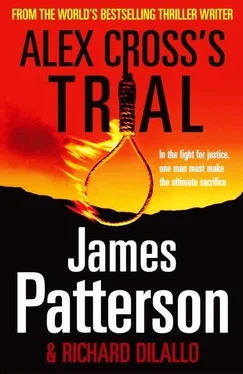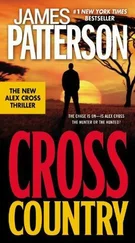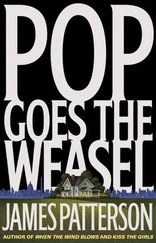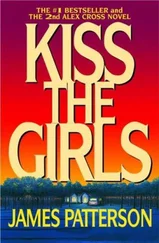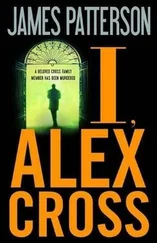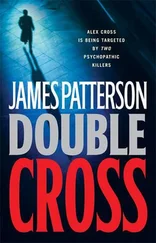“I don’t know how much of our press you’ve seen while you’ve been away, Ben, but you’ve become something of a hero up here. The more progressive citizens see you as a kind of abolitionist, a figure of progress in the march of civilization toward full equality. And the coloreds in the South see you as some kind of protector, a hero. It’s damn good! ”
“Mr. President, I was just in the South,” I said. “Believe me, I’m nobody’s hero there.”
“I’m meeting the newspaper boys in a few minutes,” he said. “You’ll be with me. I’ll announce that I masterminded your adventure in the South. I’ll disclose to them how I supported your efforts against the White Raiders. I’ll pick up votes in New England, and I’ll have the colored vote from now until the end of time.”
“But you sent me to Eudora to investigate lynchings.”
“Indeed I did. And if you’d reported back to me that lynching was a way of life among the leaders of the white South, I would have had to do something about it. Something that would enrage some white people, no matter how much it endeared me to the Negroes.”
“That’s why you didn’t answer my telegrams?”
“It wasn’t convenient for me to hear from you yet,” he said. “But then we had the most magnificent stroke of luck when the Raiders Trial came along!”
He was bubbling, but I couldn’t keep silent any longer.
“Luck? You call it a magnificent stroke of luck? People died. A town was torn apart.”
He ignored me completely, and he was still grinning at his good fortune.
“I know there was pain, Captain. That’s to be expected. Progress requires a certain amount of suffering. You did well, you worked hard, and eventually you managed to bring it all under control. I certainly chose the right man for the job.” He stood up from the sofa.
I stood as well. “Is that all, Mr. President?” I said.
“The reporters are waiting, Ben. I need you to help me explain what happened.”
“Is that an order, sir?” I asked.
He looked surprised. “Well, no,” he said. “Don’t you want to come?”
“No, sir,” I said. “If I may, I respectfully decline.”
AS I LEFT THE WHITE HOUSE that day I noticed that my legs felt more limber, my body lighter. There was an actual spring in my step. To my astonishment I felt strangely, incredibly happy.
The White House was bathed in an intensely golden light, and as I walked northwest on the wide avenue, past the tattered rooming houses and saloons, I saw the Washington Monument sparkling in the distance like a gigantic diamond hatpin.
Certainly I was angry that Theodore Roosevelt had used me as a pawn in one of his electoral chess games. And I dreaded even more the moment when I returned home to find my house empty.
But still, there was something hopeful in the light sparkling on the monument, and the delightful smell of woodsmoke on the breeze.
I found myself remembering Abraham Cross a few nights ago, just before he drifted off to sleep.
“You did fine, Ben. You did just fine.”
To have a man like Abraham say that… well, that’s all anyone could ever ask for.
“You did fine, Ben. You did just fine.”
I turned off South Carolina Avenue onto our street. Everything looked so familiar that I might have left home only a day or two ago. No one had taken a paintbrush to our peeling little house. The second-floor shutters still hung tilted and broken, and the brick walkway was still perilously uneven.
As I mounted the front steps, three months’ worth of anxiety was twisting my insides into a hard knot.
I unlocked the door and stepped into the vestibule. All was still.
I walked to the bottom of the stairs and stood there a few moments. And then–
I heard Alice’s little voice.
“I think I heard the front door,” she said.
I knelt down to remove two identical boxes wrapped in brown paper from my valise. I shucked off the paper and opened them.
“Do you think it could be Papa?” Amelia asked.
Then I heard Meg’s voice.
“I certainly hope so,” she said. “Wouldn’t that be wonderful?”
I ran up those stairs clutching the gifts for my girls – identical brown, fuzzy teddy bears, the most popular dolls of the day, inspired by President Roosevelt himself.
“Daddy!” screamed my girls, all three of them.
I took the little ones into my arms. “Now, which of you is Alice, and which is Amelia?” I asked as they giggled and snuggled into my chest.
Then I reached out my free arm. “And you – you must be Meg. I’ve missed you so much.” Then Meg came into my arms too. “I’ll never leave you again,” I whispered.
True to my word, I never did.
JAMES PATTERSONis one of the best selling writers of all time, with more than 170 million books sold worldwide. He is the author of the top-selling detective series of the past twenty years – the Alex Cross novels, including Kiss the Girls and Along Came a Spider, both of which were made into hit movies. Mr. Patterson also writes the best selling Women’s Murder Club novels, set in San Francisco, and the new series of New York Times #1 bestsellers featuring Detective Michael Bennett of the NYPD. He won an Edgar Award, the mystery world’s highest honor, for his first novel. He lives in Florida.
James Patterson’s lifelong passion for books and reading led him to launch a new website,
ReadKiddoRead.com
[http://www.ReadKiddoRead.com],
which helps parents, grandparents, teachers, and librarians find the very best children’s books for their kids.
RICHARD DILALLOis a former advertising creative director. He has had numerous articles published in major magazines. He lives in Manhattan with his wife.
Theodore “T.R.” Roosevelt, Jr.(October 27, 1858 – January 6, 1919) was the 26th President of the United States (1901–1909). He is noted for his exuberant personality, range of interests and achievements, and his leadership of the Progressive Movement, as well as his “cowboy” persona and robust masculinity. He was a leader of the Republican Party and founder of the first incarnation of the short-lived Progressive (“Bull Moose”) Party of 1912. Before becoming President, he held offices at the city, state, and federal levels. Roosevelt’s achievements as a naturalist, explorer, hunter, author, and soldier are as much a part of his fame as any office he held as a politician. Roosevelt was 42 years old when sworn in as President of the United States in 1901, making him the youngest president ever. Roosevelt was also the first of only three sitting presidents to have won the Nobel Peace Prize. The Teddy bear is named for him, despite his contempt for being called “Teddy”.
John Tyler Morgan(June 20, 1824 – June 11, 1907) was a general in the Confederate States Army during the American Civil War, and a six-term U.S. senator from the state of Alabama after the war. He was a strong supporter of states rights and racial segregation through the Reconstruction era. He was an expansionist, arguing for the annexation of the Republic of Hawaii and for U.S. construction of an interoceanic canal in Central America.
William Edward Burghardt “W. E. B.” Du Bois(February 23, 1868 – August 27, 1963) was an American sociologist, historian, civil rights activist, Pan-Africanist, author and editor. Born in Great Barrington, Massachusetts, Du Bois grew up in a relatively tolerant and integrated community. After graduating from Harvard, where he was the first African American to earn a doctorate, he became a professor of history, sociology and economics at Atlanta University. Du Bois was one of the co-founders of the National Association for the Advancement of Colored People (NAACP) in 1909.
Читать дальше
